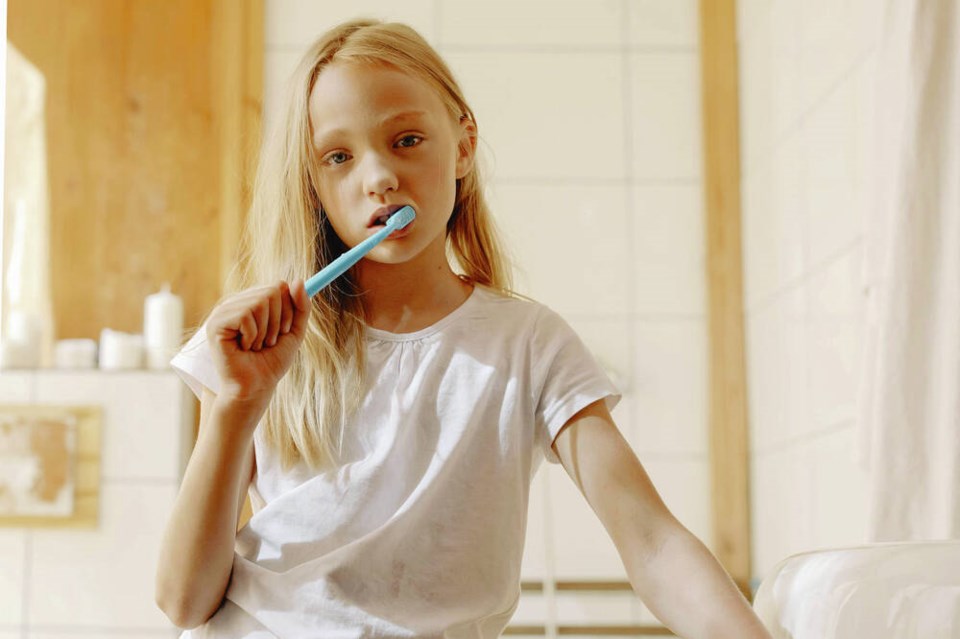The federal government’s new dental care plan has enrolled one million people so far, which is approximately one out of every 40 Canadians, or a British level of dental health.
There’s no way to sugarcoat this: Dental care is very important today because, as per the ongoing experiment in Democracy for Dummies happening south of the 49th parallel, anything we can do to prevent more holes in people’s heads is good.
That brings me to sugar, which democratically elected dentists say causes holes in the head via the teeth.
Sugar is bad for your teeth because it is good for the bacteria living on your teeth. What happens is when those bacteria eat sugar, they release acids that eat away at the minerals in tooth enamel, and decay sets in. This is known as gerrymandering.
Toothbrushing is the only way around this, because our modern diets are full of sugar. Prehistoric humans living long ago in pre-COVID times did not have sugar-rich diets. They subsisted solely on dinosaurs and hardtack.
I know what you’re thinking: prehistoric humans didn’t have Taylor Swift or golf clubs either, so are they really so great?
No, they’re not. Most of them were immigrants and wanted to defund the police. But I think we’ve lost the thread of this argument, which was along the lines of OBEY DENTISTS, as they are often on the business end of very sharp medical instruments that go right in the mouth.
Despite the lack of mod cons, prehistoric humans did come up with the first toothbrush, used by ancient Babylonians and Egyptians as far back as 3500 B.C. The primitive toothbrush, known as a “chew stick,” was basically a thin twig with a frayed end.
The first mass-produced toothbrush was designed in 1780 by William Addis. Its handle was carved from cattle bone and the bristles — I swear I am not making this up — were made from pig’s hair, which sounds gross but I’m going to go out on a limb here and say that most men would brush their teeth more often with a bacon-adjacent toothbrush.
That brings us to the electric toothbrush, which was introduced in the 1960s due to … uh, hang on a sec… Apologies, I seem to have lost my notes. Let’s just say it was drugs.
The main advantage of a manual toothbrush is it has just one moving part: you.
The manual toothbrush is also less expensive because it is small and light, thus easier to shoplift.
The downside is that it completely depends on the user’s brushing technique and diligence, meaning there is no one to blame but yourself, which is also a pretty good metaphor for voting.
Electric toothbrushes often come with features like pressure sensors, timers and cruise control. These features enhance the efficacy of cleaning, particularly in difficult-to-access areas such as the crawlspace under the house.
The electric toothbrush is also suitable for individuals with limited manual dexterity, especially dogs and cats.
Whether you use a manual or electric toothbrush, dentists recommend that you use toothpaste with fluoride, a HIGHLY REACTIVE CHEMICAL and DANGEROUS EXPLOSION HAZARD used in cleaning products, pesticides and municipal drinking water.
I’m sorry about all those alarming capital letters. I am required by law to use them because fluoride is so hazardous. On the plus side, fluoride also helps to re-mineralize tooth enamel and reverse tooth decay, so po-TAY-to, po-TAH-to.
You should brush your teeth first thing in the morning, last thing before bed, and two-to-three hundred times in between. It is important to brush for a full two minutes, which nobody does because two minutes in front of the bathroom mirror feels like 10,000 years because you run out of healthy things to think about.
Surprisingly, dentists say you should wait at least 30 minutes after eating before you brush. This is because it takes about half an hour for your saliva to re-mineralize tooth enamel, but the real advantage is you can enjoy the taste of coffee and Count Chocula breakfast cereal for longer.
Flossing is non-negotiable. It is a critical component of having fewer holes in your head and I hope you, like me, are flossing right now.
We’re also not supposed to wet the toothbrush, as it dilutes the toothpaste and leads to more foaming. I don’t know about you, but the foaming is the best part of brushing so I’m going to keep at it, dentists be damned. PLEASE DON’T TELL THEM I SAID THAT.
Children learn from “mirroring” their parents, so it’s a good idea for the whole family to brush at the same time. They can watch your brushing technique, and how you stare into the mirror, wondering when society went off the rails, what the future holds, that kind of thing.
Also, brushing together has the added benefit of on-site quality control, by which I mean you can tell when your children are lying about whether or not they brushed. This is critical because children will lie their heads off every damn day if you let them.
Don’t let them. Do everything you can to make sure they have fewer holes in their heads than we have in ours.
>>> To comment on this article, write a letter to the editor: [email protected]




